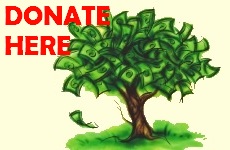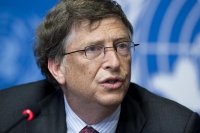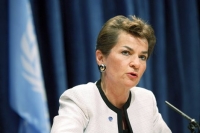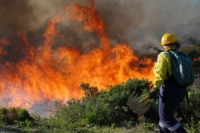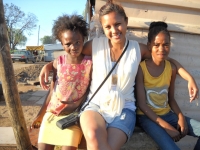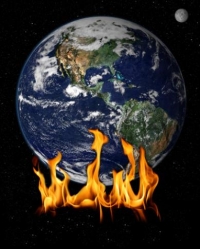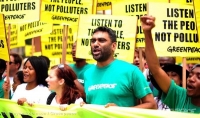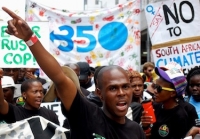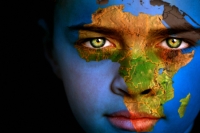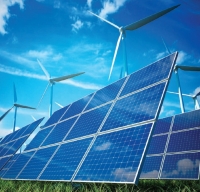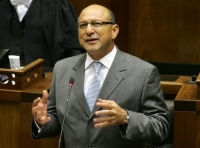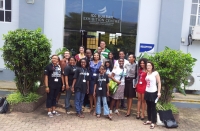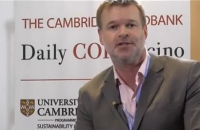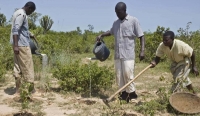The inner workings of a libertarian thinktank working to discredit the established science on climate change have been exposed by a leak of confidential documents detailing its strategy and fundraising networks.
"Technology is vital for developing countries to both curb their emissions and to build more climate-resilient societies," said Christiana Figueres, Executive Secretary of the UNFCCC. "This meeting is an important next step towards ensuring that the Mechanism becomes fully operational this year and begins delivering concrete results”.
John from ‘Wisdom to Nourish' writes that many people are experiencing broken sleep, strange or vivid dreams and possibly also feelings of anxiety or fear at this time.
“South Africa is likely to see drastic rises in surface temperatures over the coming century as well as an increase in the occurrence of very hot days. Heat waves are expected to occur more frequently,” said Francois Engelbrecht, Principal Researcher on Climate Studies – Modeling and Environmental Health at the Council of Scientific and Industrial Research (CSIR.)
An amazing journey? Yes. In four weeks I saw 17 cities and witnessed some of the most interesting people tell stories of their struggles with climate change.
Four leading renewable energy associations have announced their intention to launch an umbrella body to act as a single voice championing the importance and relevance of the Renewable Energy Industry in South Africa. The announcement comes in the wake of the Green Economy Accord recently concluded through a series of engagements amongst Government, Business, Labour and Community at Nedlac.
In a last-minute deal reached on December 11, 2011 at the 17th session of the Conference of the Parties (COP 17) to the United Nations Framework Convention on Climate Change (UNFCCC) meeting in Durban, South Africa, governments decided to adopt a universal legal agreement on climate change as soon as possible, but not later than 2015. Work will begin on this immediately under a new group called the Ad Hoc Working Group on the Durban Platform for Enhanced Action.
As the holidays approach, the giant Asian factories are kicking into high gear to provide us with monstrous piles of cheaply produced goods - merchandise that has been produced at the expense of South African labour. This year will be different. This year South Africans will give the gift of genuine concern for other South Africans.
A wolf in sheep’s clothing, we’ll all agree, is a dangerous beast. Yet, here in the UNFCCC wolves are walking among us on a daily basis, some easier to spot than others. Politicians are meant to be the masters of disguise, and some of their disguise attempts, while feeble, are passing muster. This article aims to reveal the wolf’s teeth and claws underlying the sheepish disguise of carbon capture and storage under the clean development mechanism.
Waiting nine years for climate action isn’t just a delay, it’s a death sentence for communities on the front lines of the climate crisis. Yet that appears to be exactly what the US representatives to Cop17 are pushing: delaying climate change action until 2020.
As the first week of negotiations at the so-called “African COP 17” drew to an end and the final week begins, it is perhaps a poignant time to ask: What could possibly be meant by calling COP 17 “an African” COP?
On Monday the 5th of December MediaClimate held a seminar titled “Media meets climate: A problem or a solution for social movements” at the Centre for Civil Society, University of KwaZulu-Natal, Howard campus.
New street lighting in Durban represents good luminance and uniformity in LED lighting; will create a more livable city with safer roads, increased security and a comfortable outdoor environment.
South Africa and European Union nations earlier this week announced a massive renewable energy initative, and this was launched in Durban on Wednesday. The South African Renewables Initiative (SARi) is in a bid to scale up and secure long-term funding to enable the growth of the renewable energy industry in South Africa.
The largest ever financial vehicle for the distribution of climate justice is soon to be on the negotiating table at COP 17. International delegates at COP 17 are gearing up to discuss the Green Climate Fund, which requests of developed countries to provide developing countries with “scaled up, predictable, new and additional, and adequate funding” to deal with climate change. Its future might, however, be on shaky grounds.
As countries such as the US, Canada, Russia and Japan push to delay agreement to a legally binding framework for climate change to 2020 - a delay which will likely push our ability to reduce climate change to 2 degrees Celsius out of our hands – it is either sadly ironic or apt (I can’t decide) that COP17 commemorated Youth and Future Generations Day today. The focus of many of the commemorations was on the role that youth had to play in the future of climate change negotiations, and how climate change would affect both today’s youth and future generations.
COP17: The Cambridge Programme for Sustainability Leadership (CPSL) is running a series of high-level briefings at their Oasis of Fresh Thinking with people who will be commenting on the negotiations as they unfold and giving a business perspective on the leadership challenges for businesses in the sustainability arena.
South African president Jacob Zuma has declared his intention to have a decision on Agriculture at the UN COP17 climate negotiations in Durban; while the World Bank is promoting so-called “Climate Smart Agriculture” and carbon offsets as the future of African agriculture and climate solutions.
Africa’s first carbon-neutral bank, continued to demonstrate its commitment to water sustainability as a key participant and host of the Water Roundtable side event at the COP 17.

